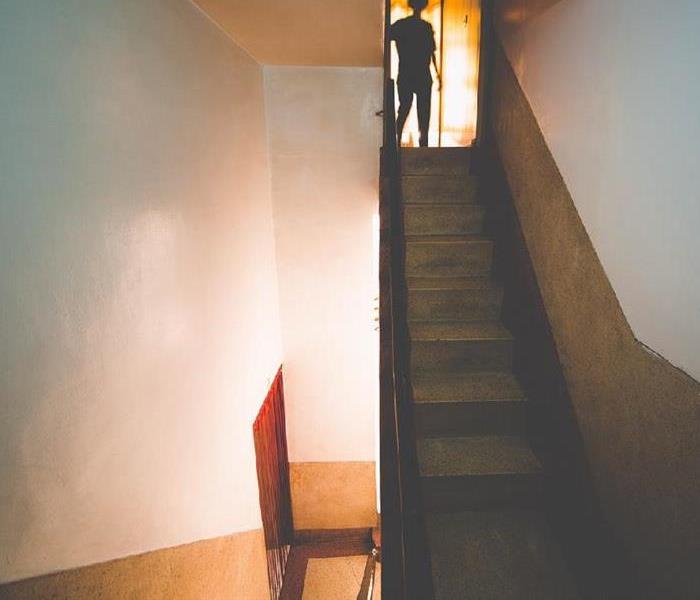What To Do After Your Basement Floods
1/26/2021 (Permalink)
Heavy rains, winter storms, burst pipes, and sneaky leaks all can result in your basement flooding, and it’s often frustrating or even panic-inducing to come home to water pooling in your basement or even worse, steadily rising. Although your instinct may be to run into the water and start baling it out by the bucketful, we recommend you proceed with caution before taking any hasty courses of action.
Knowing what to do ahead of time is the best way to stay calm in the unfortunate situation of a flooded basement, so we’ve compiled a list of next steps you should take after discovering flooding in the lowest room in your home.
1) Stay out of the water
Never compromise your safety by entering floodwater in your basement. The first thing you should do after discovering flooding is to call your electrician as well as SERVPRO of Belle Meade/West Nashville to help deal with water removal and any water damage that may have occurred or is currently occurring. Entering floodwater, especially when your circuit breaker is still on, puts you at serious risk of electrocution or worse. If your power breaker is located on an upper floor that isn’t flooded, turn off your power, but if it’s located downstairs, stay far away from the floodwater.
2) Determine the source of the water.
Is the flooding from rain or does it stem from a burst pipe or another leak in your home? This is key to being able to stop the flooding from impacting your basement any more than it already has. If the flooding is coming from a storm or rain shower that is ongoing, you should wait to deal with the flooding until the pros come.
3) Remove the water from your basement after you determine the source or the storm stops.
Once the professionals have arrived or if you’ve managed to turn off your power and determined the water source is from inside your home, it’s time to move any electronic appliances that haven’t touched the water but are close to it far, far away. Next, you can start baling the water out of your basement. Be sure to wear appropriate boots and gloves to move things out of your basement, and proceed with caution as the wet areas are sure to be slippery. You may need to purchase a second sump pump or use towels and a mop to soak up the water, depending on the severity of the flooding.
4) Dry your basement and any damp objects.
Figure out if any damp objects are worth keeping and attempting to dry out or if you should just pitch them. Any upholstered furniture is likely ruined if it was submerged in water for a lengthy period of time. Depending on the extent of the flooding, removing your carpet may be necessary. Use fans to start drying the area until the professionals arrive to take care of the rest.
All of these steps are integral to take as soon as it’s safe to deal with basement flooding to minimize or avoid mold growth. Mold can cause health effects, and damp objects and flooded areas are particularly susceptible to mold colonies, which is why you should address basement flooding as soon as possible. If you ever experience a flooded basement or water, storm, fire, or mold damage or any kind in your home or your business, contact SERVPRO of Belle Meade/West Nashville at (615) 242-9391. We’re available 24/7 and ready to help you when disaster hits! This franchise is independently owned and operated.






 24/7 Emergency Service
24/7 Emergency Service
